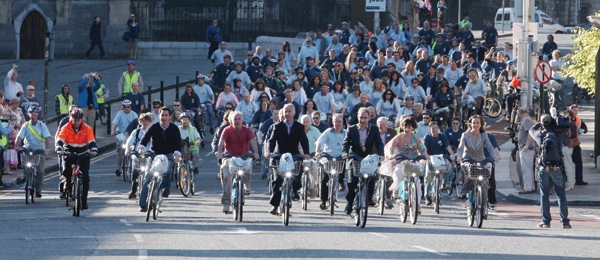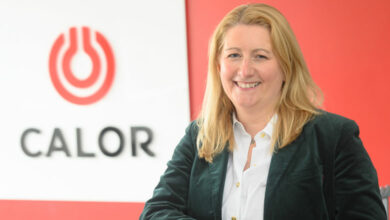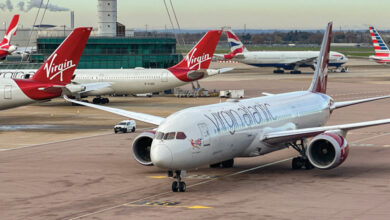Towards sustainable transport
Reversing spending on roads and making a determined focus on the alternatives is the way to green the province’s transport, John Barry suggests.
With the impact of the Icelandic volcanic ash grounding most flights in Europe likely to live long in our collective memories, it is perhaps appropriate to focus our attention on transportation and mobility within Northern Ireland.
The Executive estimated that the disruption cost Northern Ireland around 120,000 passengers and cost the local tourist industry around £1 million a day. To state the obvious, transportation and mobility are therefore vital in modern society. But clearly as well as the obviously economic (and social) aspects of transport and travel, there is a need to find transportation options that are less dependent on imported fossil fuel and reduce our carbon and ecological footprint. To state the obvious, we need sustainable forms of transportation and mobility.
We face a steep learning curve. Northern Ireland is one of the most car-dependent parts of Europe. Currently some 65 per cent of journeys made are less than five miles – a clear example of our unsustainable (and unhealthy) mobility choices. The recent Regional Development Committee inquiry into sustainable transport offers a useful point of departure and indication as to where the debate about sustainable transport is in Northern Ireland.
Before outlining some of the submissions to that inquiry some basic facts about current transport policy must be considered. PricewaterhouseCoopers’ report, ‘Bridging the Gap’, highlighted the lack of investment in public transport in Northern Ireland compared to the rest of the UK and Ireland. Yet the agreed transport budget, as part of the agreed Executive Investment Strategy for the next 10 years breaks down as follows: £725 million for public transport and £3 billion for roads and cars.
The charity Sustrans for example identified the following items as key parts of any sustainable transport policy:
• Encouraging people to change their travel behaviour by supporting people to travel more sustainably, and giving every child and young person the knowledge, skills and confidence to establish the habit of travel by foot and bike early in life;
• Creating safe, attractive walking and cycling conditions by investing in walking and cycling networks in rural and urban areas, and redesigning streets to reduce traffic speeds in built up areas to 20mph or less;
• Increasing public transport usage by improving, integrating services and reducing fares by introducing a national travel card, and providing more demand-responsive transport services to people living in rural and urban areas so that they can choose to travel sustainably.
The Institute of Public Health made the point that what was needed for a sustainable transport system was one which encouraged rather than discouraged walking and cycling, since growing car dependency has been a cause of growing obesity and related health problems. In a similar health- related vein, the National Institute for Health and Clinical Excellence in the UK strongly recommends that transport planners should “ensure pedestrians, cyclists and users of other modes of transport that involve physical activity are given the highest priority when developing or maintaining streets and roads which can be achieved by widening pavements and introducing more cycle lanes”. So, sustainable transport has economic, social, environmental, land- use, planning and health impacts and therefore needs a holistic, integrated rather than a single-focus approach, such as only looking at the transport issue from an economic perspective.
A sustainable transport system for Northern Ireland therefore seems to include a determined ‘modal shift’ from car dependency to greater use of public transport, walking and cycling. Here, the imbalance between the spending on roads and non-roads is not encouraging; a sustainable transportation strategy would effectively require those figures to be reversed. Will Belfast, for example, follow the example of Dublin and its phenomenally successful bike rental scheme?
In conclusion a shift from car dependency would generate economic advantages at a time of recession (according to the PwC report), obviously reduce health problems and also reduce our carbon and environmental footprint. That’s a win-win- win: if the department puts non-car mobility on an equal footing – to use an appropriate phrase.
Dr John Barry is a reader at the School of Politics, International Studies and Philosophy at Queen’s University Belfast.






